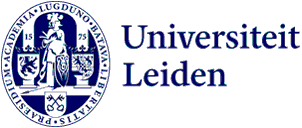
NATO Chief Rutte in conversation with The Hague students: ‘I’m glad about Trump’
Wearing All Stars and ‘just’ a pair of jeans, with a backpack slung over his shoulder. It was an informal Friday afternoon with Mark Rutte, NATO Secretary General, at Wijnhaven. Perched on a desk, he took questions from students in the audience.

As soon as he entered the auditorium, Rutte seemed to recognise familiar faces everywhere. Smiling broadly, he shook hands and chatted with people along the way. Around 750 attendees (across two lecture halls) had come especially to see the NATO leader. A small group of Gaza protesters, however, had come to voice their opposition. The background noise did not appear to bother Rutte.
‘Welcome to your home city!’ Ernst Dijxhoorn, Assistant Professor at the Institute of Security and Global Affairs, gave Rutte a warm welcome: ‘Some say you are more from The Hague than both Louis Couperus and Haagse Harry combined.’ The tone for the afternoon was set, everyone laughed, including Rutte himself. Dijxhoorn reminded the audience that the former Dutch Prime Minister and now NATO Secretary General once studied at Leiden University, in Leiden, to be precise. ‘It just took a few years,’ Rutte, known for his long student days, joked.
‘An incredible honour’
Anna van Zoest, Director of the Netherlands Atlantic Association, then opened the conversation. Sitting alongside Rutte on the desk, she posed the first question: ‘If in 2023 you had known what you know now, would you still have chosen NATO?’ For Rutte, the answer was a firm yes. ‘I am enjoying it tremendously and it is an incredible honour to do this, even if it is not easy.’ His visits to Ukraine, he explained, had left a deep impression on him. ‘I was therefore pleased that during the NATO summit in The Hague we were able to reach agreement on supporting Ukraine.’

Russian drones
Van Zoest moved the conversation to a current issue: Russian drones in Poland. ‘There was no statement, no sanctions. Is NATO deterring strongly enough?’ she asked.
Rutte did not hesitate: ‘Absolutely. We are still investigating whether the Russians acted deliberately, but it was unacceptable and reckless. I was deeply impressed by NATO’s military response; swift action was taken. At NATO, all 32 member states must agree before a decision is made, unless quick action is required. Once again, it shows that we must learn from the Ukrainians, financially, but also in dealing with large numbers of drones. They are forced to innovate. This really was a wake-up call.’
Rutte emphasised at length that Ukraine must get what it needs.
Working with the United States
After the ten-minute conversation, it was time for questions from the floor. One student asked about cooperation with the United States, particularly on financial matters.
‘That was the whole idea behind the NATO summit, that we share the burden more equally. Since Eisenhower, the US has been frustrated by Europe’s lower spending, including here, under great leadership,’ Rutte added with a smile. He underlined that Europe really needs the US for its defence, but the reverse is also true, citing China’s vast arms industry as an example. ‘We all have our opinions about today’s America, but I value the pressure that Trump brought to bear on defence spending. When Obama asked his good friend Angela Merkel to spend more, nothing happened. Without Trump as president, we would never have achieved such a result.’

Israel-Palestine
The conflict in Gaza also came up, with students outside still making their voices heard. ‘There is consensus among NATO member states on Gaza, but it does have an impact, as you can hear now, and it is a security issue. Why do you not take a clearer stance on this?’
Rutte replied: ‘Within NATO, member states would be divided, and NATO is not directly involved, our role is to keep our member states safe. Of course, that is a simplistic answer. We do have a Southern Neighbourhood partnership, which includes Israel, Jordan and Iraq. NATO will never reach consensus on Gaza, and even if we did, we could not act, we simply do not have a role. This is different for the European Union, which can exert pressure on Israel.’
‘A defensive alliance’
Rutte reminded students that NATO is a defensive alliance, without cause to attack any country. ‘And our strength lies in democracy. We are a democratic alliance, with elections, a free press, the right to demonstrate, you can hear it outside, democracy is at work. I am glad about that; it makes us stronger than anyone else. This is one of the reasons why I believe this century will again be an American century. Why? Because of work ethic, innovative power, and deep democratic traditions. That is why we are better off.’
After receiving a book gift from Martijn Kitzen, Professor of War Studies, and a recently completed Leiden dissertation on a revolutionary from Leiden, it was time for a selfie with the students, Rutte decided.
Clambering onto a windowsill in the corner to get the best shot, he then headed up the stairs: ‘Great, see you all at the drinks reception!’
The meeting is organised by Leiden University, the Royal Netherlands Society for Military Studies (KVBK), and the Netherlands Atlantic Association.
-
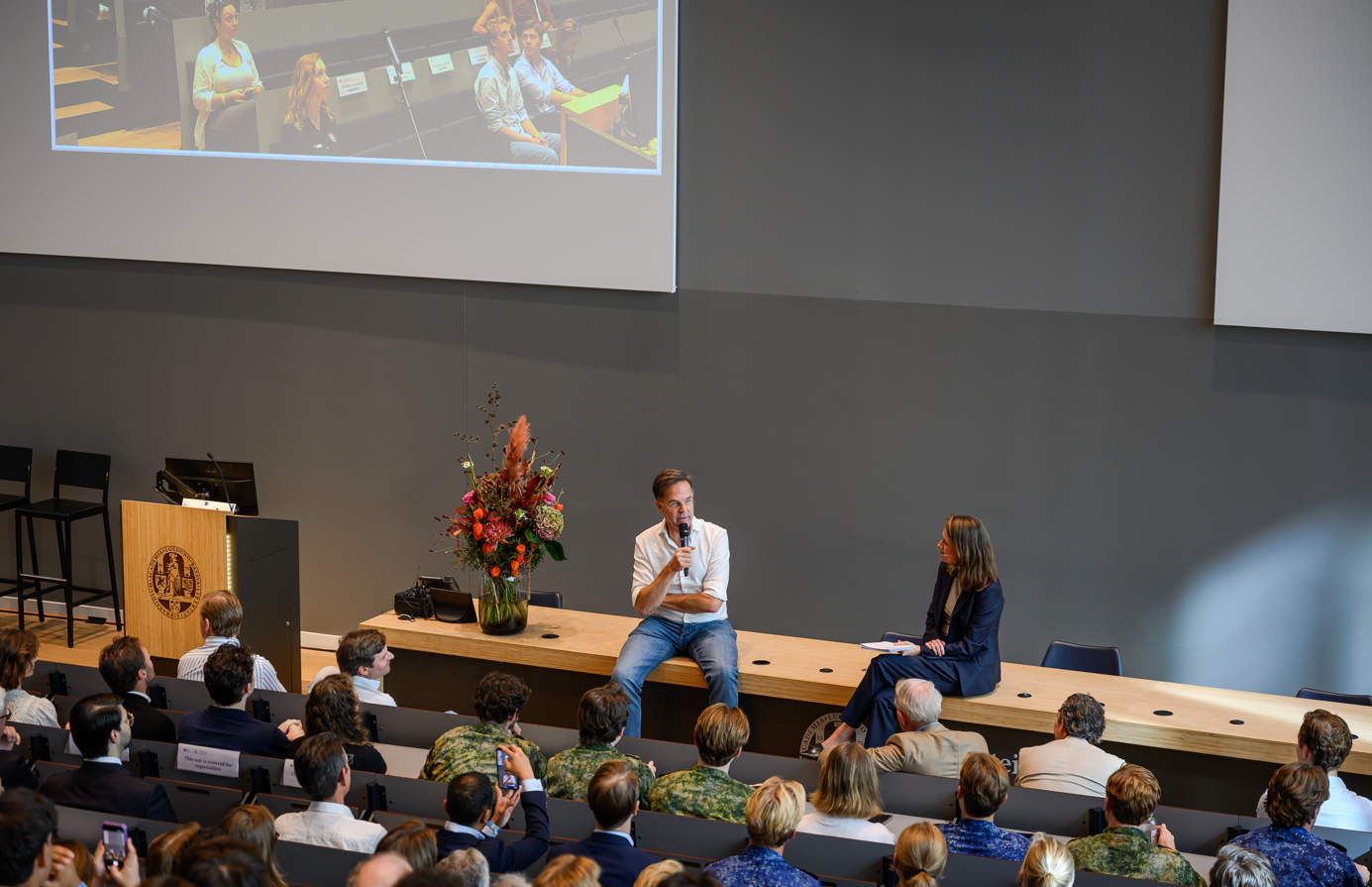
With Anna van Zoest -
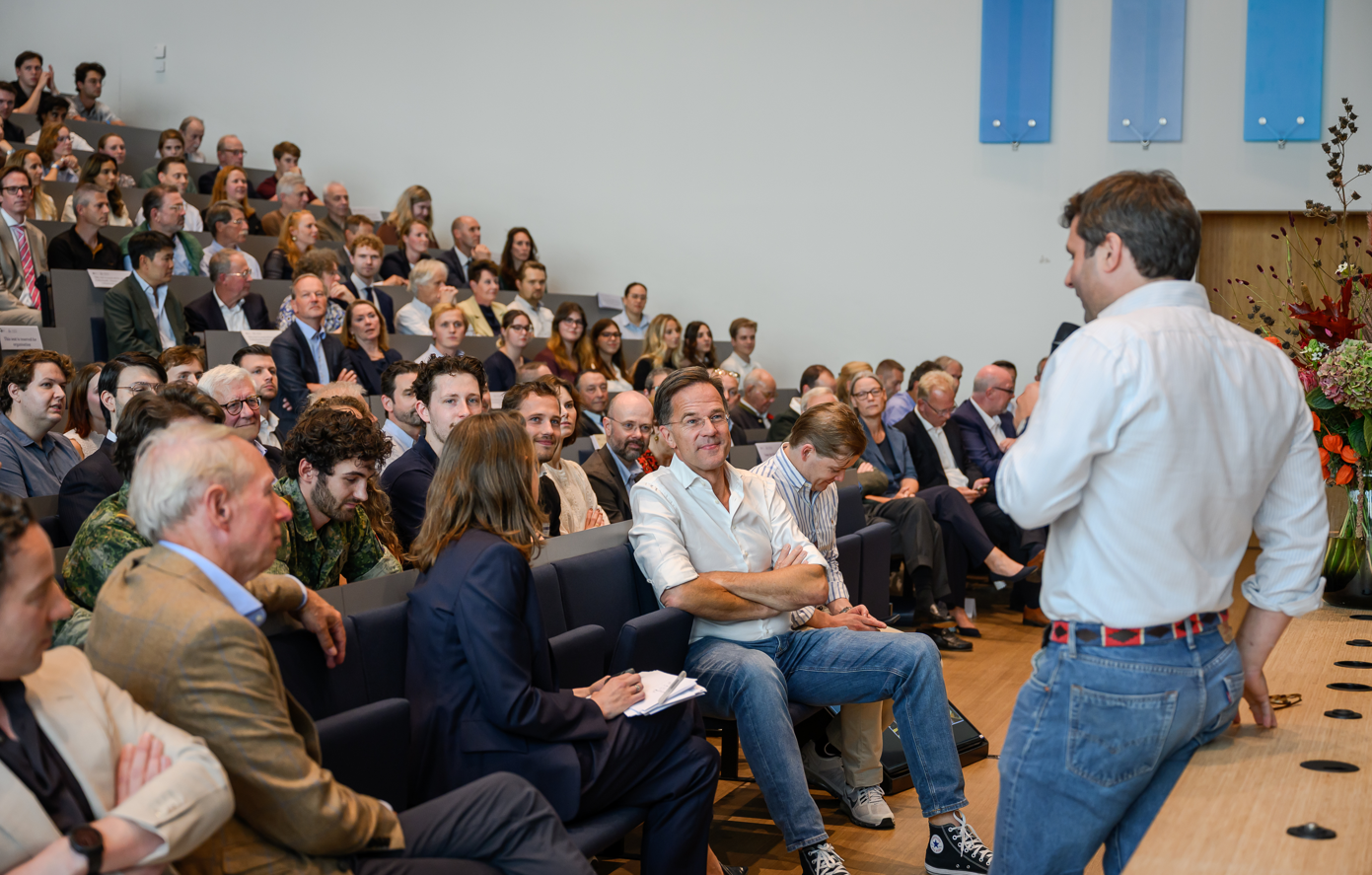
-
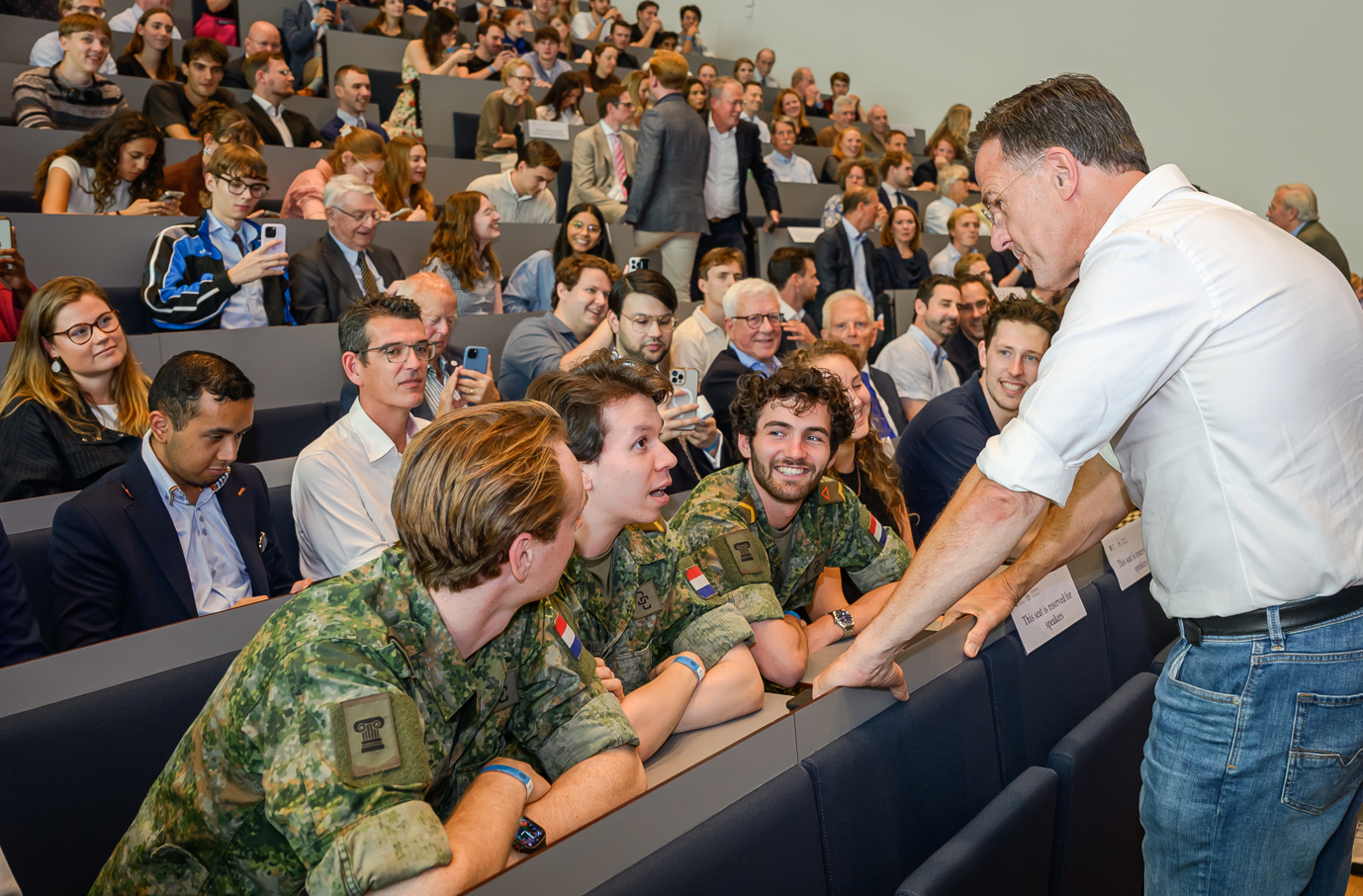
-
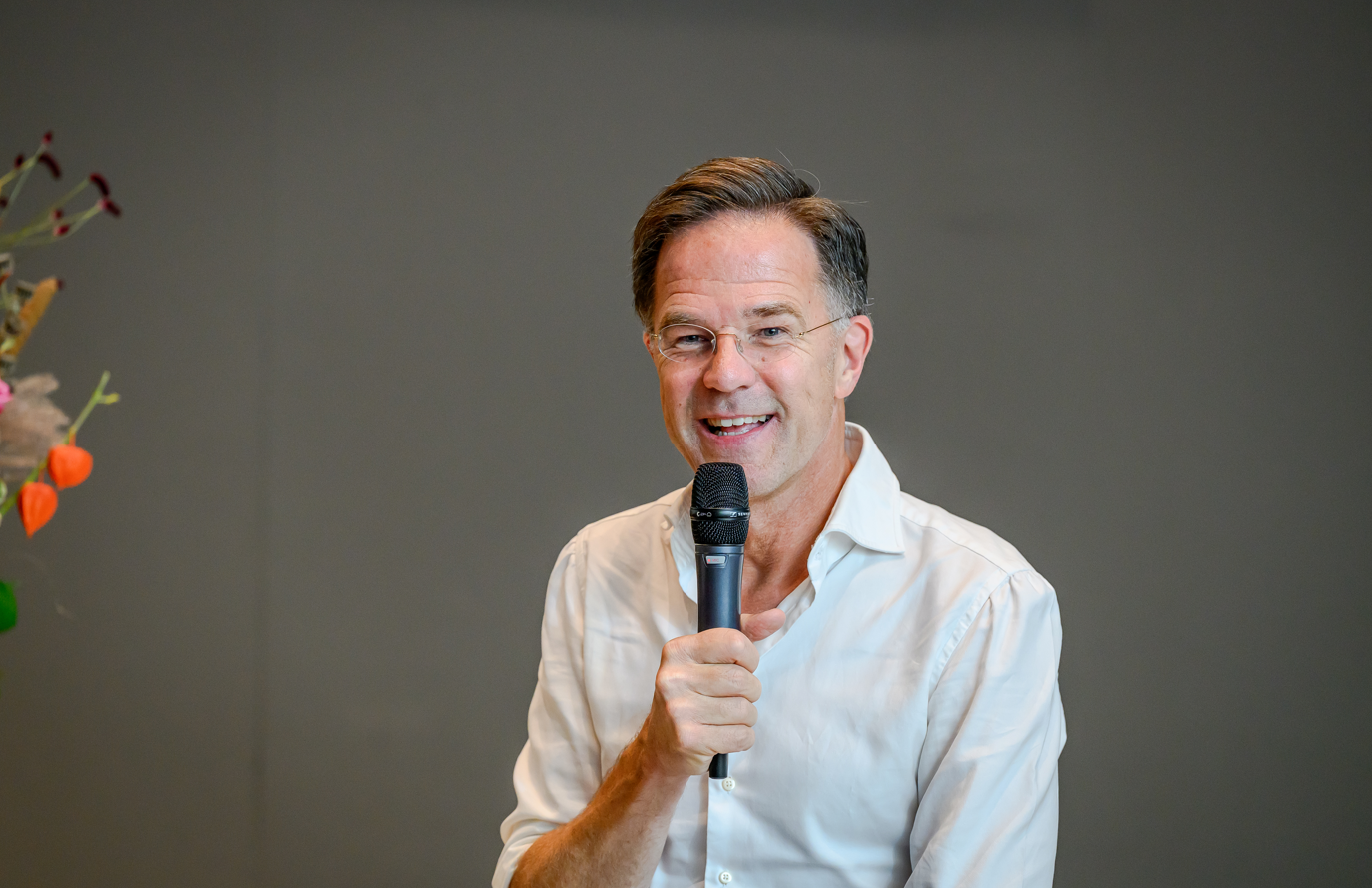
-
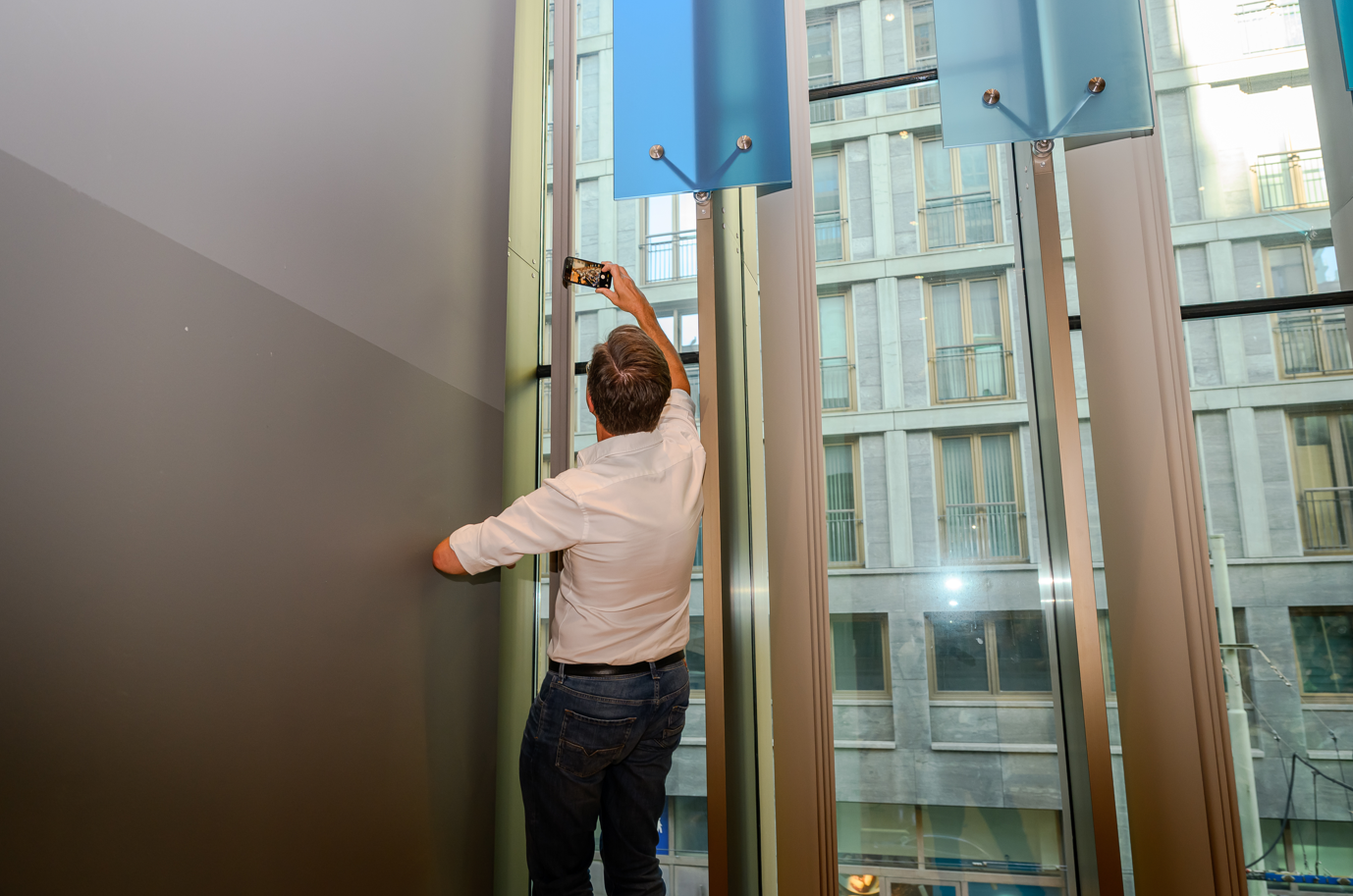
Rutte’s selfie -
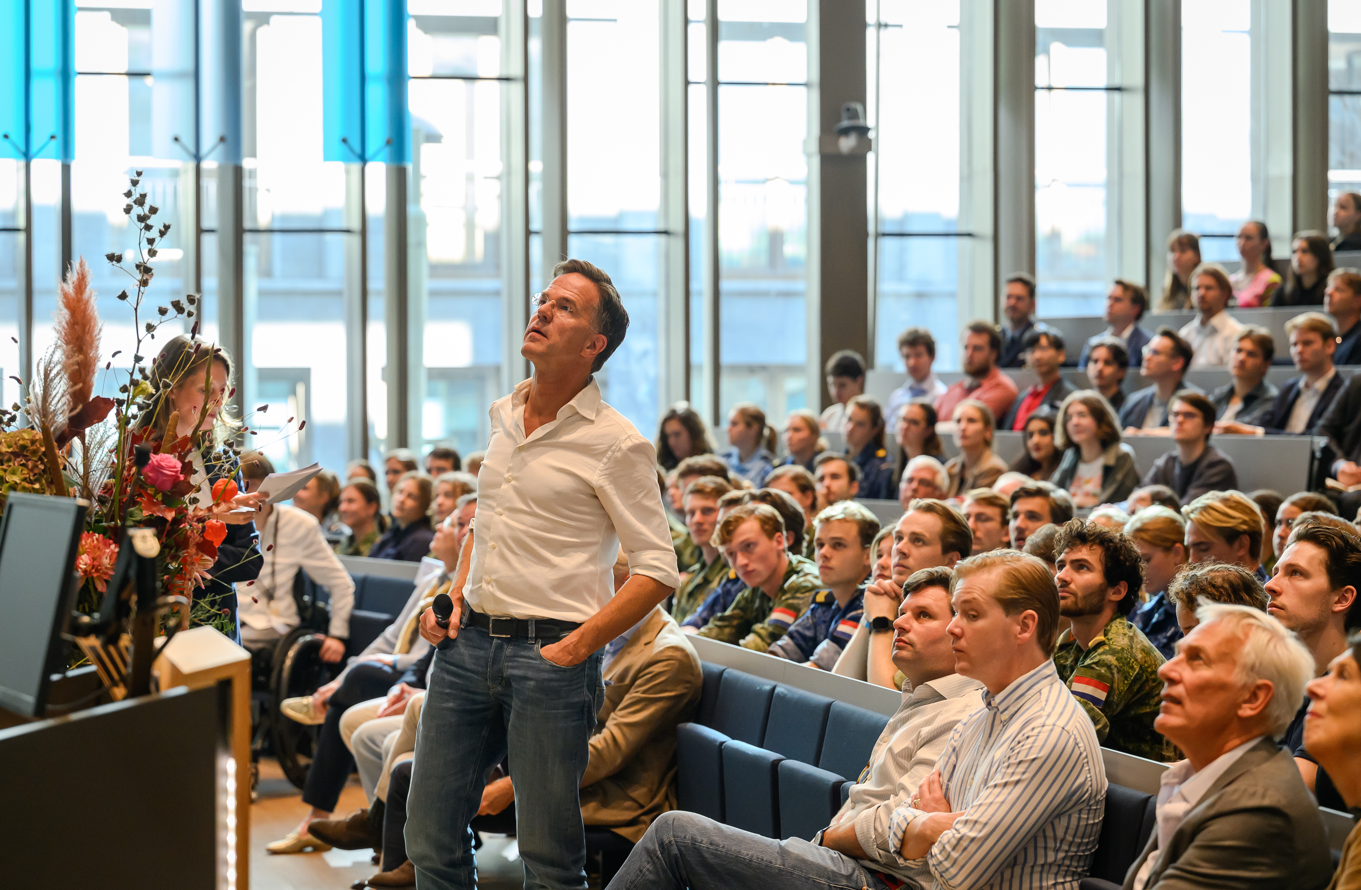
Rutte answers a question from the other lecture hall. -
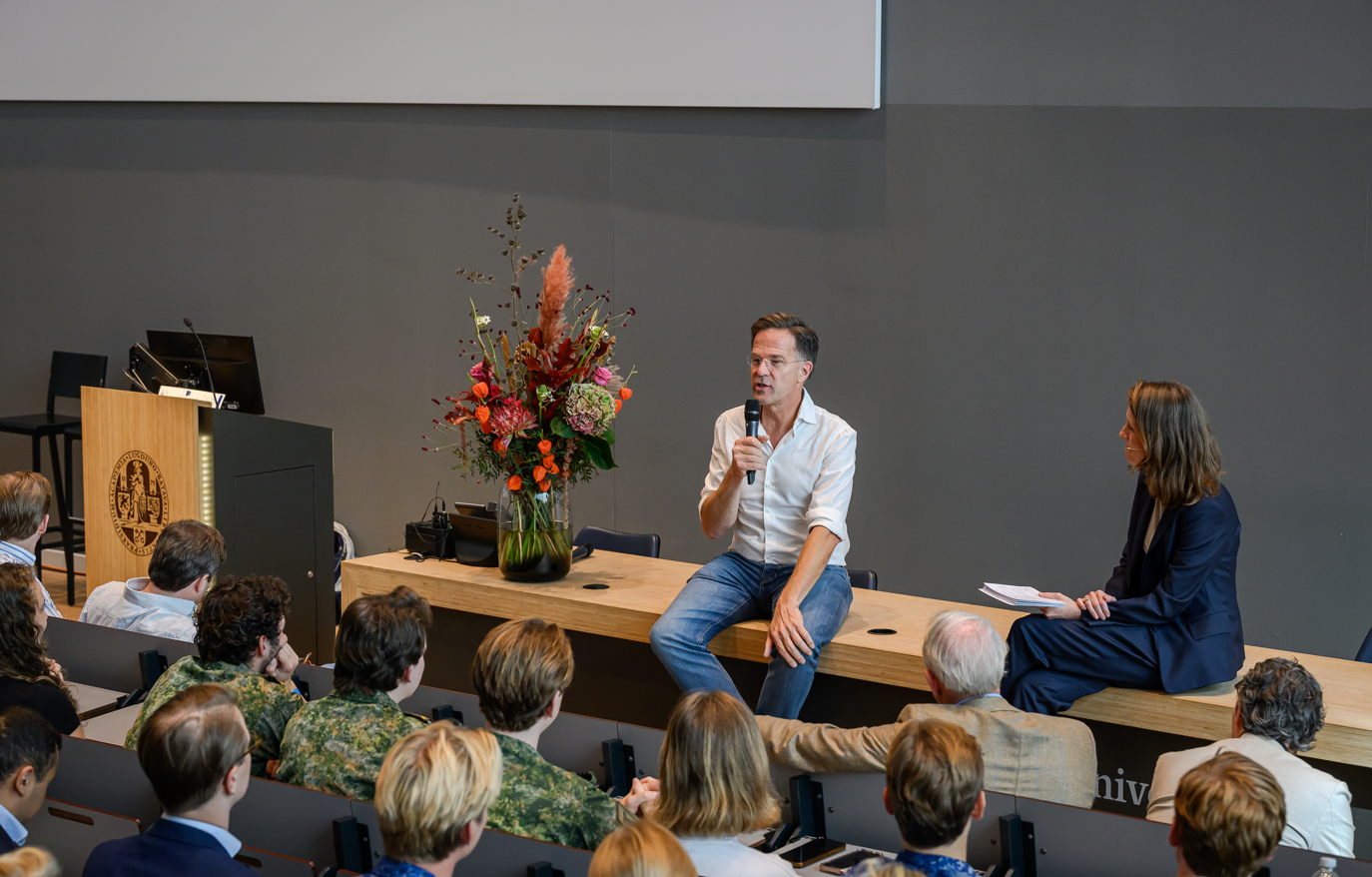
-
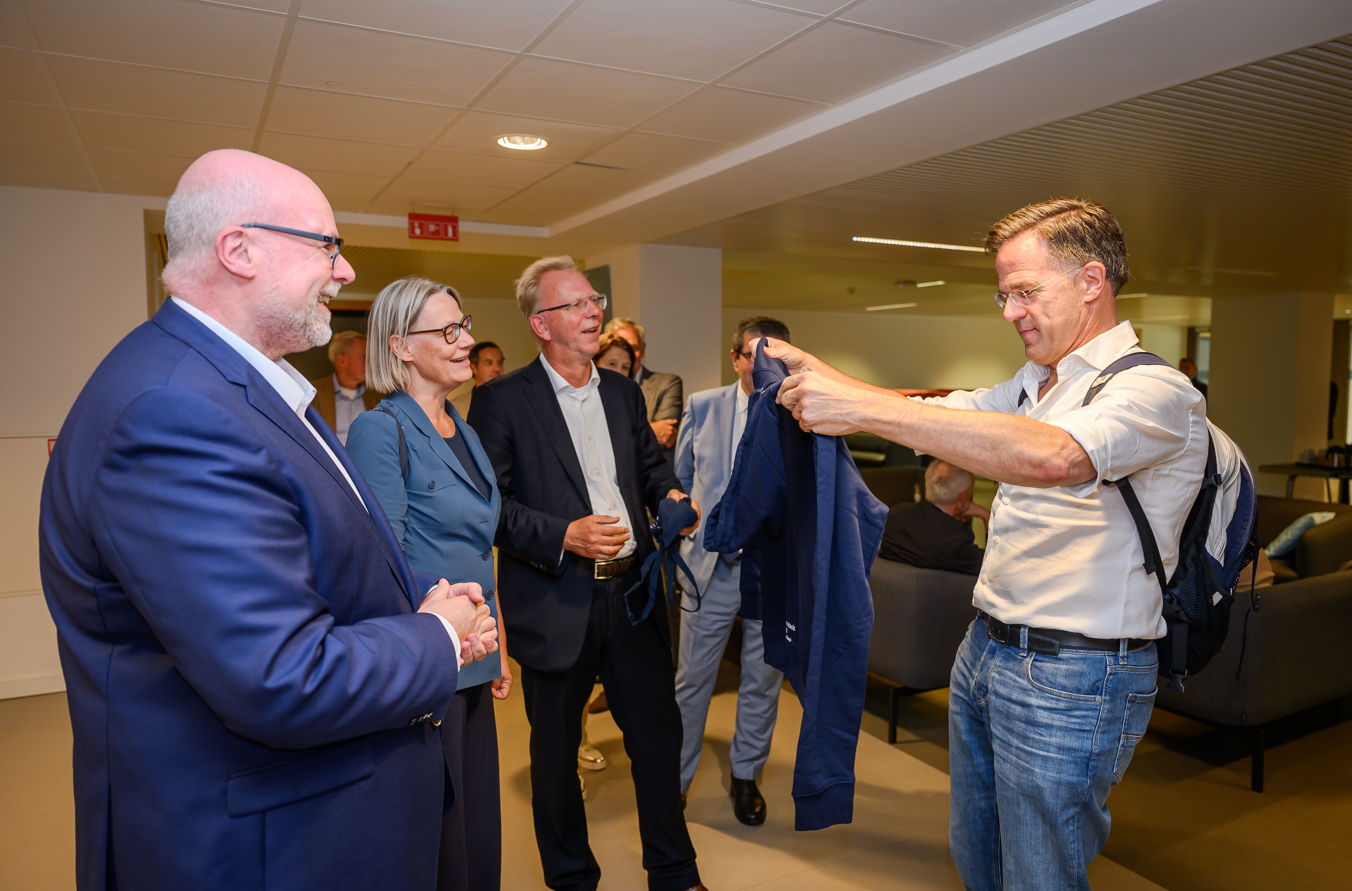
Rutte receives an FGGA sweater. -
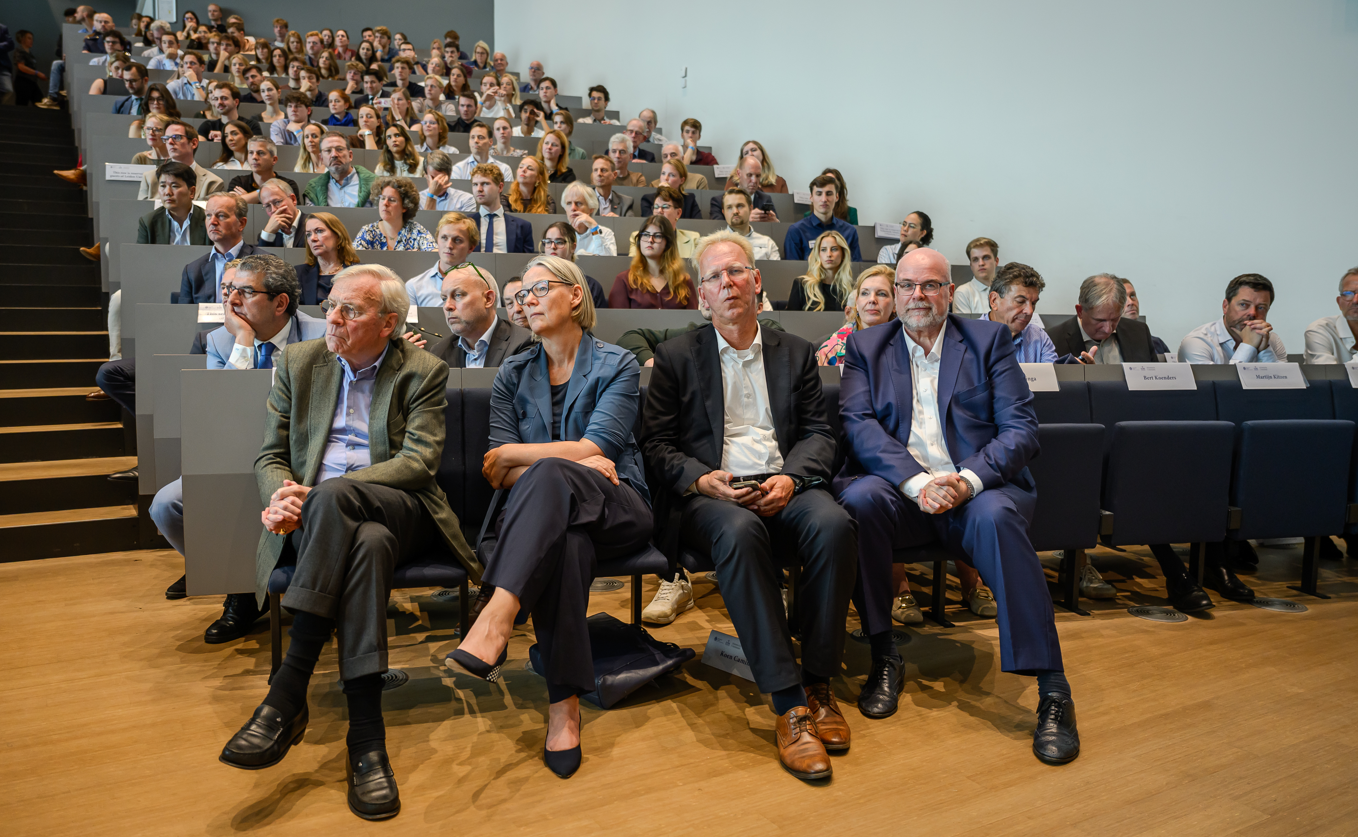
-
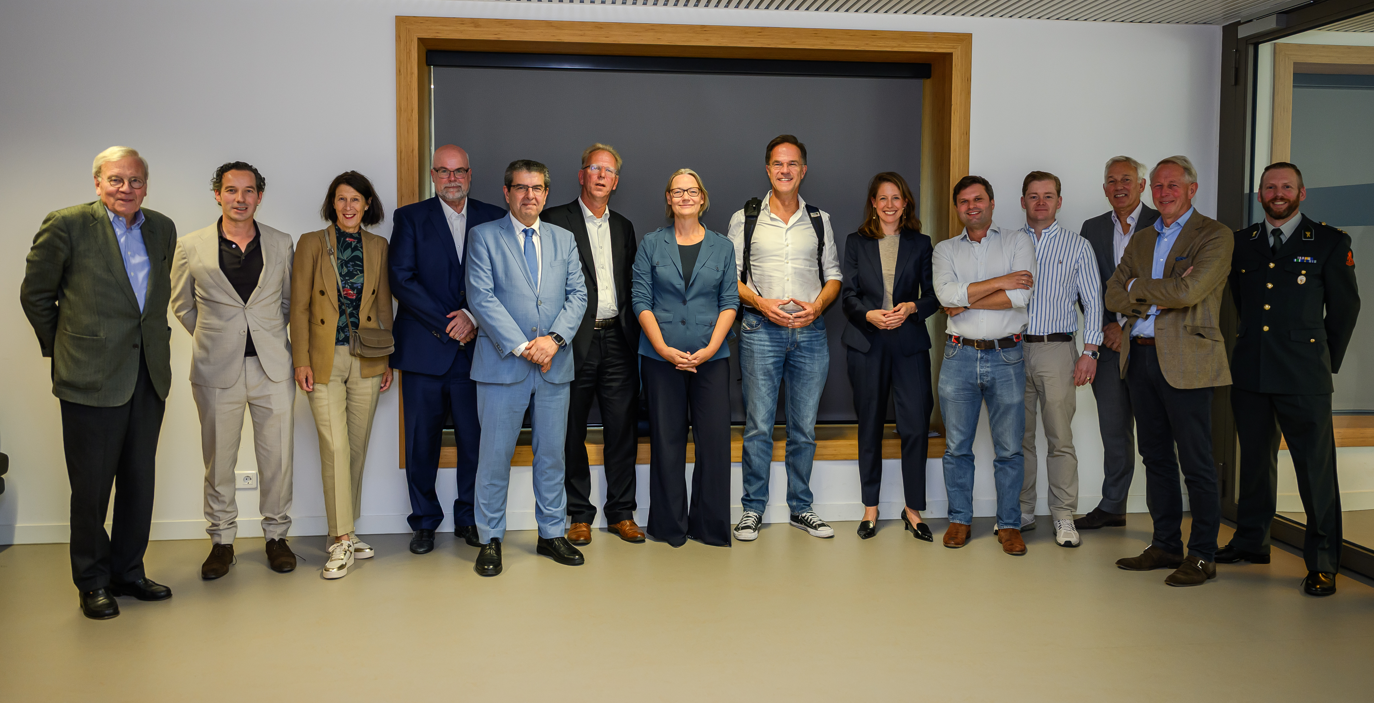
-
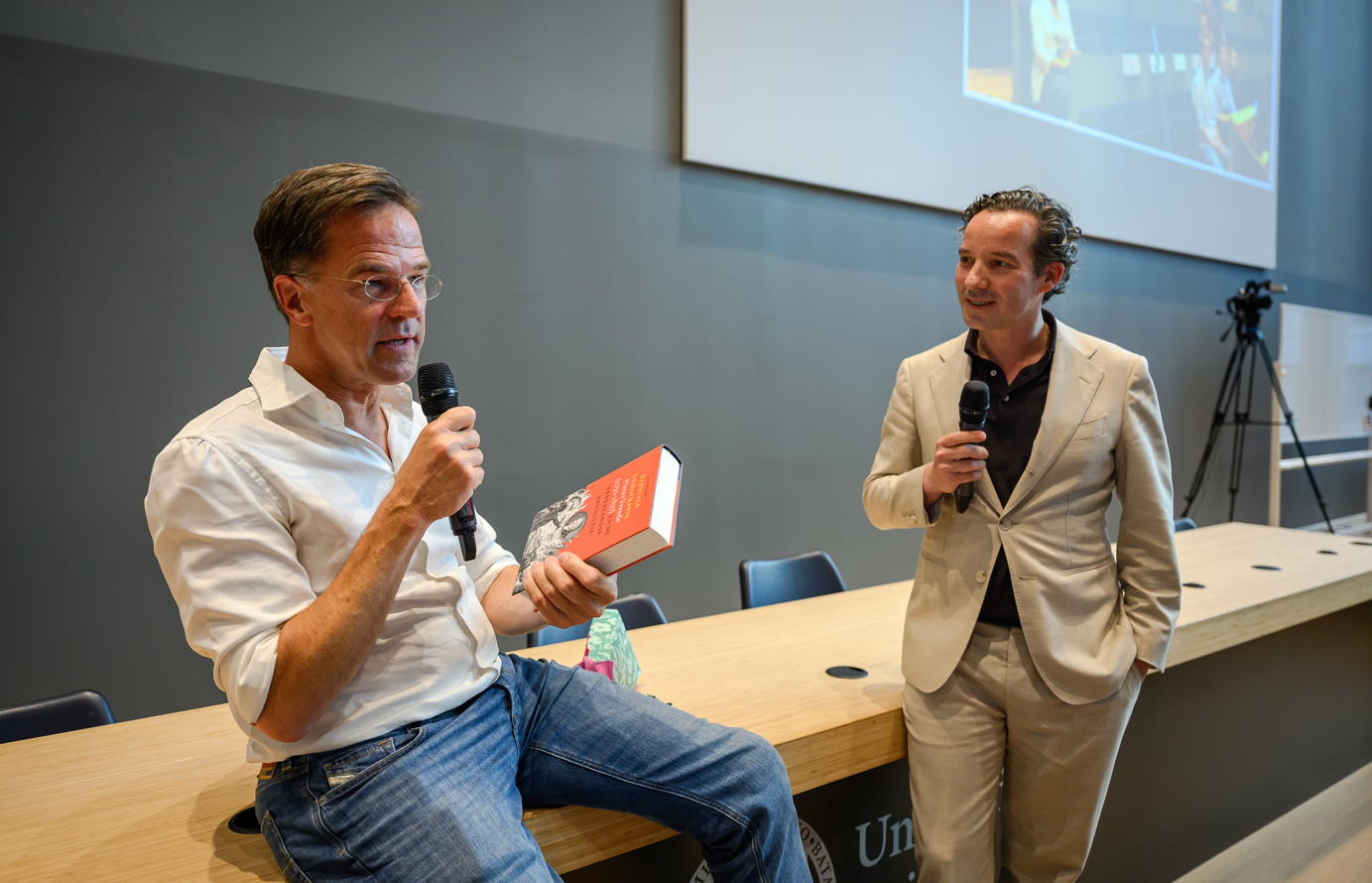
Rutte receives a book from Martijn Kitzen, Professor of War Studies. -
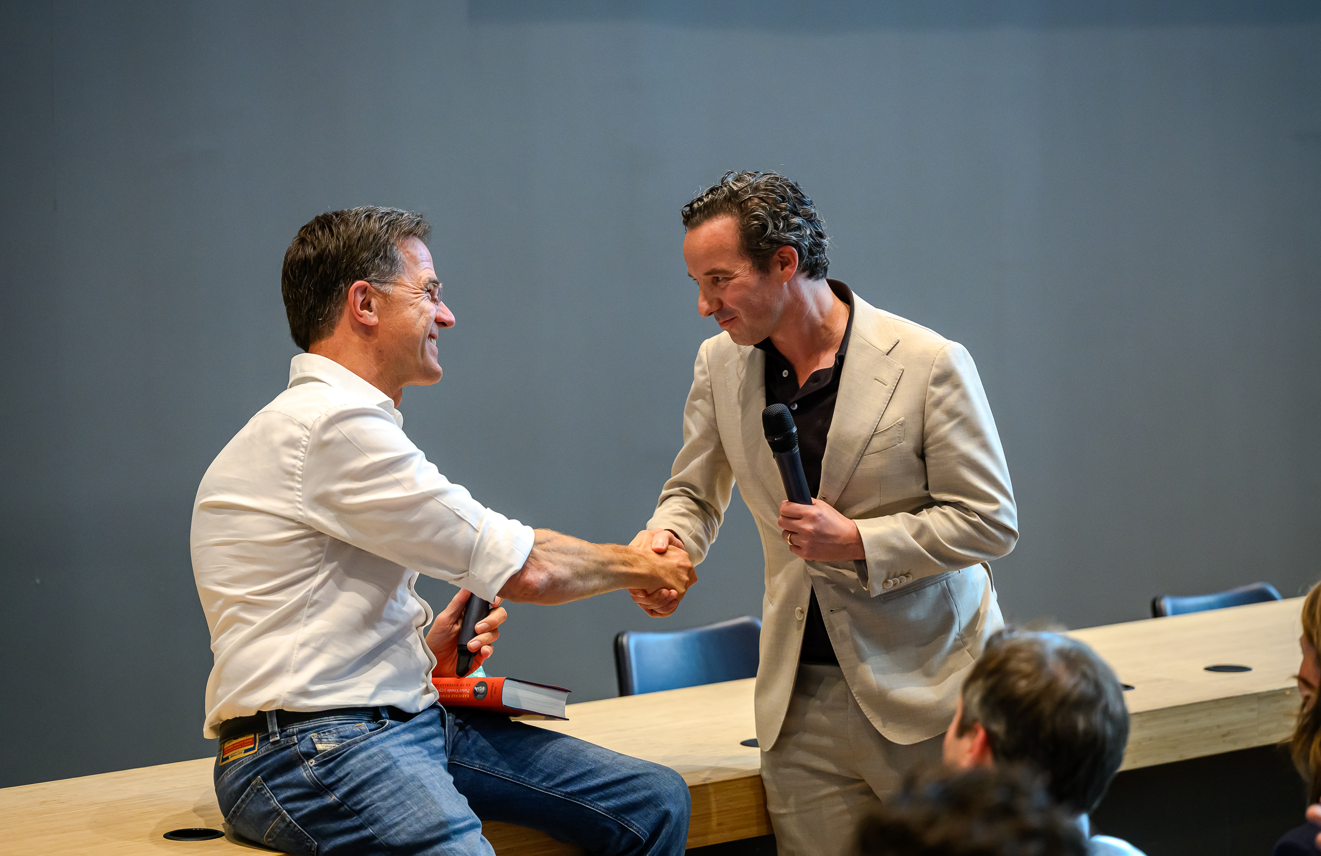
-
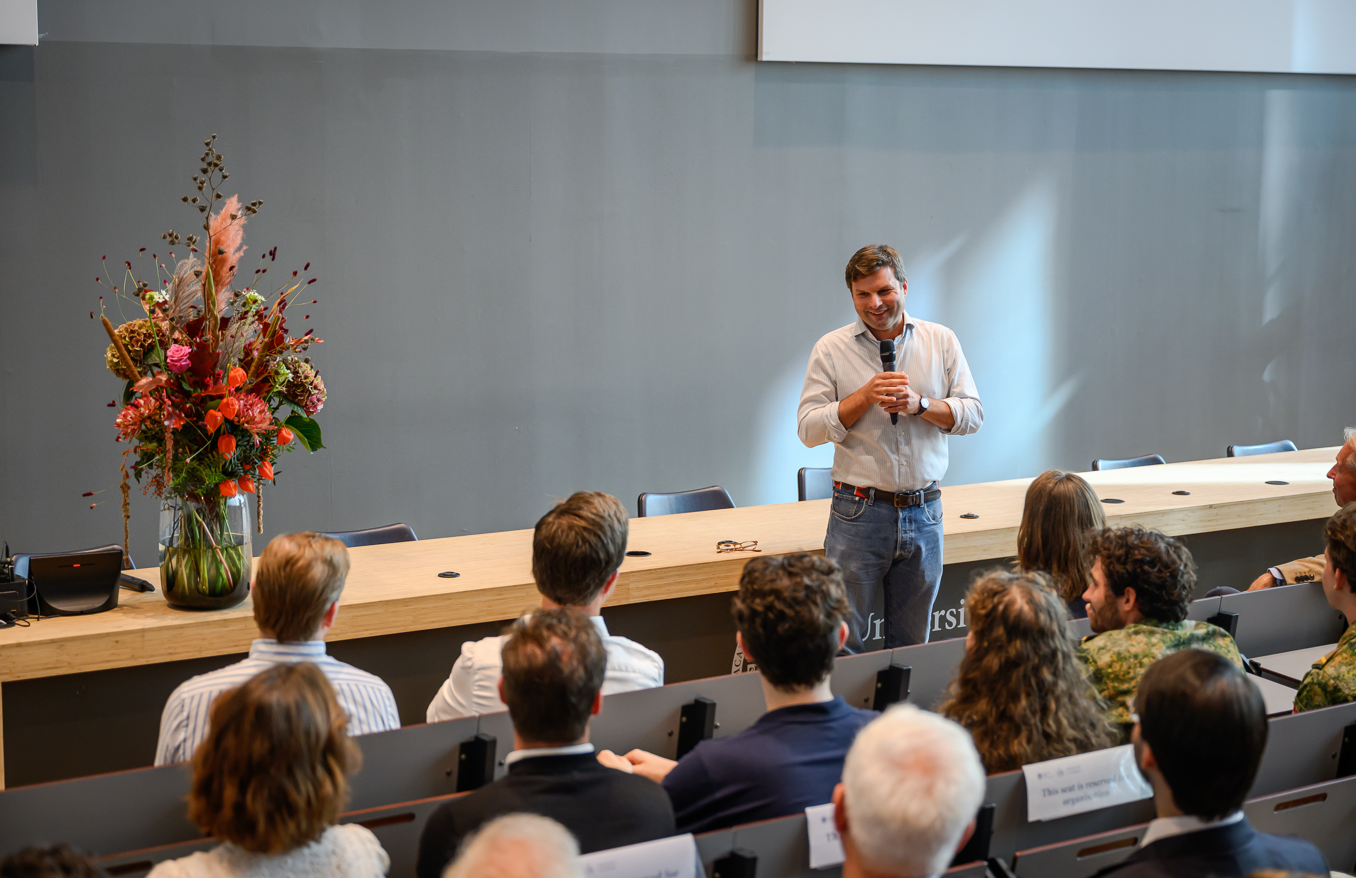
Ernst Dijxhoorn, Lecturer at ISGA -
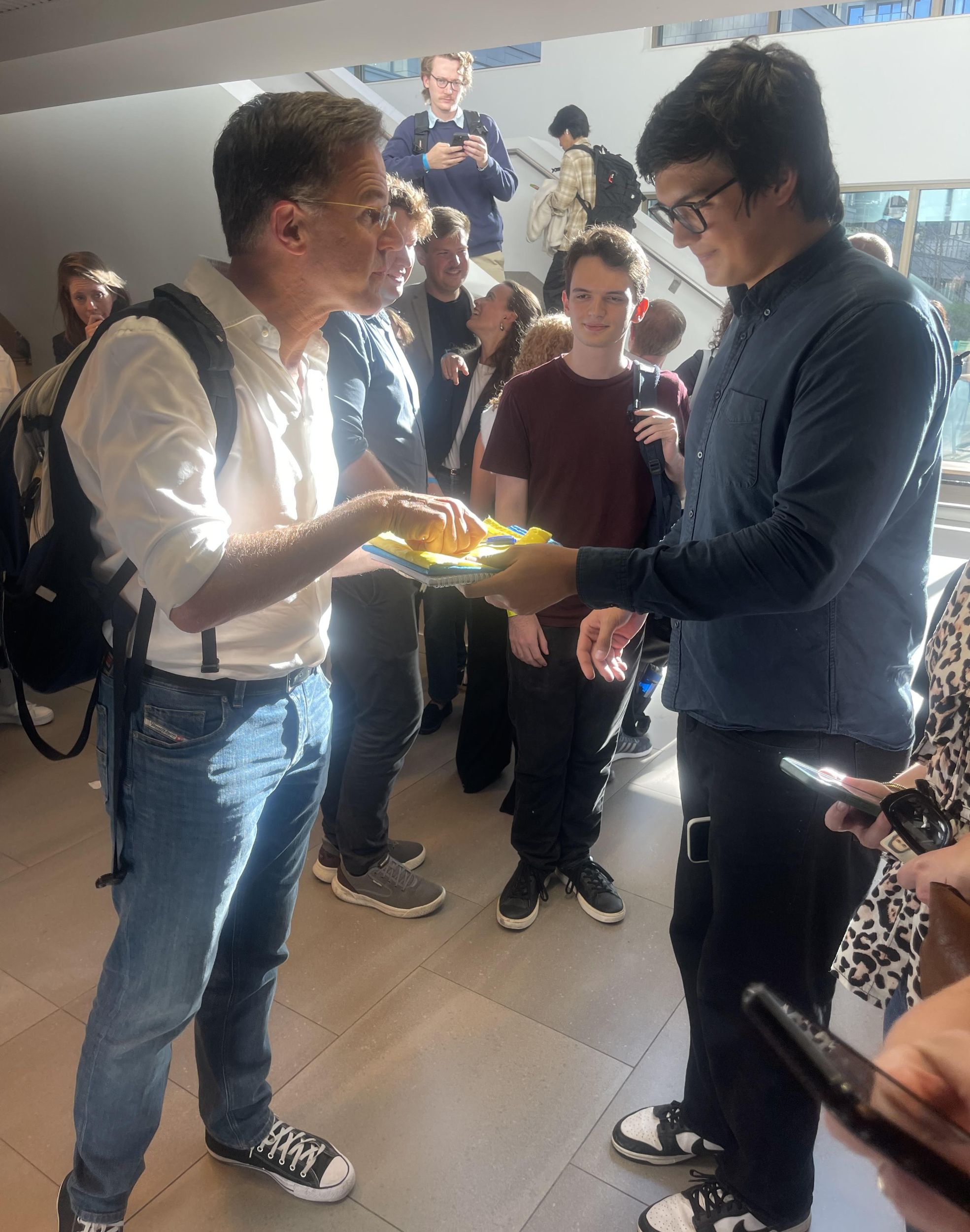
Rutte signs a Ukrainian flag belonging to a student. -
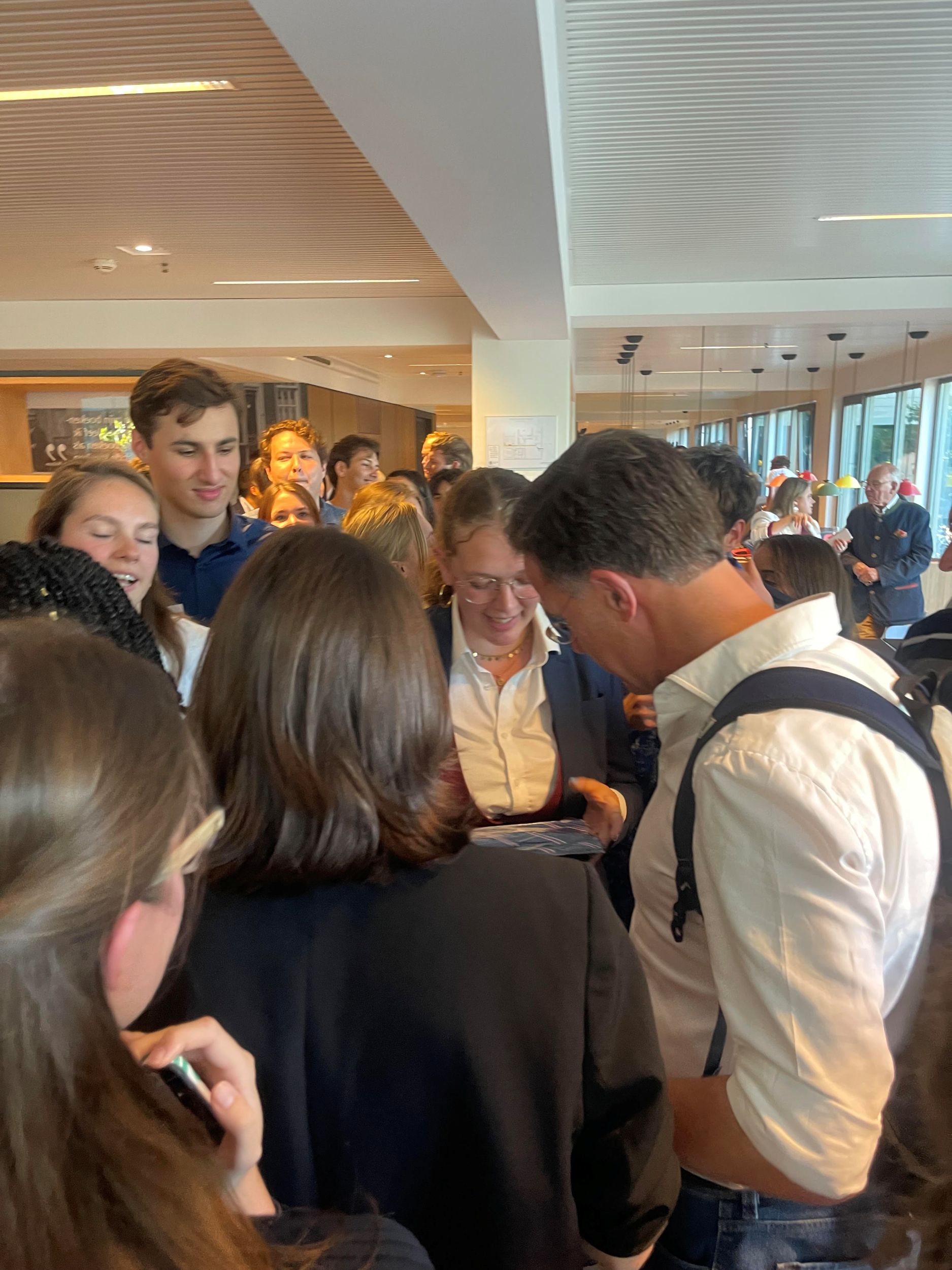
Students flocked to the drinks reception for a brief chat and a selfie moment with the NATO Chief.
